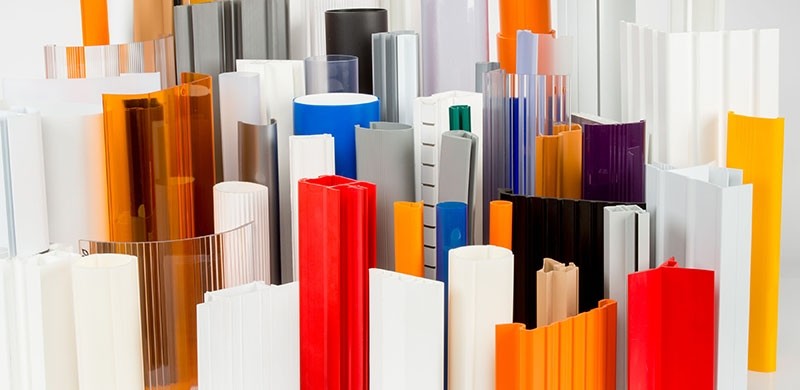There are different forms of plastics with varying properties that can be extruded. Experienced plastic extrusion companies have the tools and expertise to work with a variety of materials. The plastic manufacturer works with you to establish your desired forms, shapes, or profiles. Here, we explore various plastics that you can extrude to your preferred form:
Unplasticized Polyvinyl Chloride
Unplasticized Polyvinyl Chloride (UPVC) is a stiffer form of polyvinyl chloride (PVC) that can be subjected to plastic extrusion. The material self-extinguishes and is resistant to chemicals. It is efficient for indoor and outdoor applications. You can use UPVC to make drainpipes, fencing, and window frames. UPVCs are available in various grades and colors, fitting varying consumer needs.
Styrene-butadiene-styrene
Styrene-butadiene-styrene (SBS) is made from styrene end-blocks offering thermoplastic properties of toughness and butadiene mid-blocks offering soft elastomeric features. You can extrude SBS for applications in door seals, labels, and medical tubing. The hardness and wear resistance of SBS makes it useful in the manufacturing of shoe soles and heels.
Polyvinyl Chloride
Polyvinyl Chloride (PVC) is a flexible plastic available in different colors and hardness to satisfy varying client needs. Plastic manufacturers can help you extrude PVC, which is suitable for indoor and outdoor use. Common applications of PVC include making bumpers, sleeves, gaskets, and medical tubing.
Polypropylene
Polypropylene (PP) is a plastic that can be used indoors. The plastic material has high chemical and electrical resistance and high impact strength. You can use it for non-load-bearing hinges, piping, and cable insulation. Skilled plastic manufacturers may fill PP with carbon fibers and glass to increase its tensile strength and heat deflection temperature.
Thermoplastic Vulcanisates
Thermoplastic vulcanisates (TPVs) are plastics with high heat resistance. The automotive sector can use TPVs to make hoses, seals, and weatherstripping. TPVs are available in varying hardness levels and grades to address different client specifications.
Melt Processable Rubber
Melt processable rubber (MPR) has strong chemical resistance, allowing its use in areas with grease and oil stains. The plastic is available in black and white colors. You can extrude MPRs to manufacture weather strips, hand grips, tubing, and other automotive components.
Acrylonitrile Butadiene Styrene
The acrylonitrile butadiene styrene (ABS) plastic is made of synthetic rubber, which gives it a high resistance to chemicals, fires, extreme temperatures, and impact. ABS has good adhesive features that may be suitable for use indoors. The polymer is applied in manufacturing items such as freezer cabinets, phones, and toys.
Polyethylene
Polyethylene (PE) is available in low densities (LDPE) and high densities (HDPE) that are hard and resistant to chemicals. They can function effectively in low temperatures. By-products of LDPE include carrier bags and squeeze bottles. You can use HDPE polyethylene to make products such as chemical drums, tubes, and pipes.
Polycarbonate
Polycarbonate (PC) can withstand high temperatures. Consider UV-stabilized and superior flame-retardant PC options for outdoor settings. PC products can help in eye protection and the manufacture of water bottles.
Nylon 6
Nylon 6 is a plastic material that is tough and has a high tensile strength. The low friction property of the material makes it highly resistant to abrasion. You can use the nylon grade to manufacture gears, pneumatic airline tubing, and bearings.
Choose a Reputable Plastic Manufacture for Effective Plastic Extrusion
The plastic materials you can extrude include unplasticized polyvinyl chloride, styrene-butadiene-styrene, acrylonitrile-butadiene-styrene, melt processable rubber, thermoplastic vulcanisates, polypropylene, polyvinyl chloride and nylon 6. Reputable plastic manufacturing companies understand the varying qualities of plastics and how to use these qualities to achieve the desired outcomes. Work with the right plastic manufacturing company to make sure you get the best plastic material for your project.
